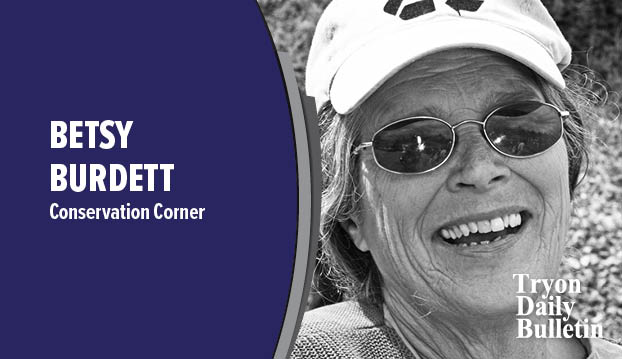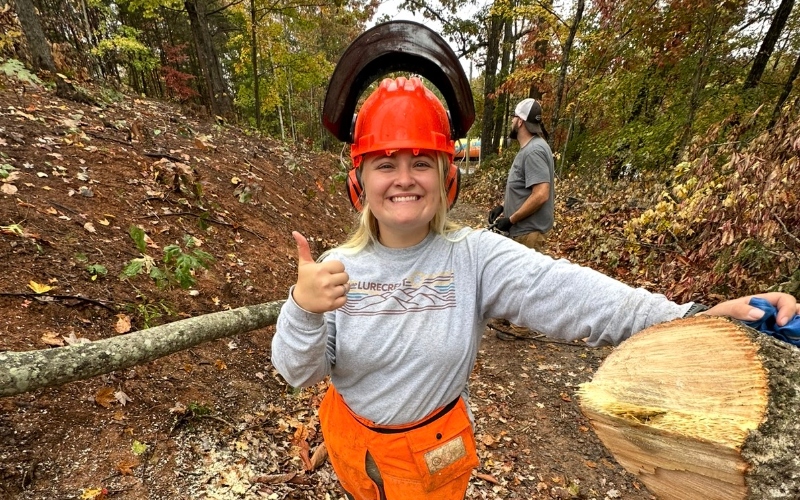Don’t sell your land
Published 11:40 am Friday, May 30, 2025
|
Getting your Trinity Audio player ready...
|
I don’t know about you, but I sometimes ask myself questions that I can’t answer. Like “Why does that person wear that outfit?” or “Why is it raining when the sun is shining?” or “Why is that house built on the side of this busy road when there is open land right behind that house?”
My guess is that you have dozens of questions like these in your mind that will never be answered; we can simply keep wondering why. For me, the questions hide in mental ‘storage’ and will probably never be answered.
That last question has lingered in storage for several years, and I just figured out the answer. The house is built on the side of the road because all the land behind it—hundreds of acres—is owned by an entity that is not willing to sell the homeowner a tenth of an acre so that a home can have a backyard. Now, I will explain to you how all this “thinking” came about.
Members of my family have been to Guatemala 12 times over the past 24 years to visit our sister church near the Mexican border, and we usually take a 7-hour bus ride from the airport in Guatemala City to our small town/village of La Reforma. That means a lot of time looking out the bus window as we drive through villages and miles of sugar and banana plantations, forests of rubber trees and coffee plantations as we move closer to the mountains of western Guatemala.
We see shacks crammed into the villages and poor dwellings along the road, but none more than 100 feet from the road. I often wondered why some of those shacks, which are the homes of all the farm workers, aren’t closer to the fields where they work but are all crammed along the busy road. Were they forced to build/live within the highway right-of-way? It is a distinct possibility.
I started digging into Guatemalan history in the 1950s, when the democratically elected president, Jacobi Arbenz Gusman, was overthrown by a coup authorized by President Eisenhower. This coup was primarily driven by the United Fruit Company (now Chiquita) and its lobbying efforts to protect its interests. The Secretary of State at that time, John Foster Dulles, and his brother Allen Douglas, head of the CIA, had significant links to the United Fruit Company.
The country’s 23 richest families, who mostly lived in Guatemala City, held interests in US Corporations and also controlled the Guatemalan government. The coup in 1954 led to the installation of a military dictator, Carlos Castillo Armas, and a period of US-backed authoritarian rule, backed by US Corporations that saw widespread violence and “land grabbing” for the powerful families and corporations in control.
As of 2000, 1.5% of the population owned 2/3 of the land in Guatemala, while 94% of the population occupied 1/5 of the land. While Guatemala has the largest economy in Central America, it struggles with high poverty rates and income inequality. This resulted from the marriage of US Corporations and the US Government after WWII, at the expense of those with no voice. The indigenous Mayan peoples and small subsistence farmers and peasants lost all their land and ultimate means of survival.
It does not take a lot of land to survive and to feed a family if you are smart and thrifty. Allen and I moved to this small, abandoned farm in the woods with very little money. We cleared enough space for a garden (a friend came and plowed it for us) that kept us in vegetables most of the year. The boys learned to eat snacks straight from that garden—okra fresh from the stalks is pretty darn good! Without that little bit of tillable land, we would have been in trouble.
Pay attention to what is happening in our part of the world. US Corporations and the US Government are engaged like it was in the 1950s. DO NOT SELL YOUR LAND, regardless of the huge price that you are offered. Without land, we cannot survive. And remember, God created the earth and everything in it, and it is good. But he did not invent money. We did that, and now we’re paying the price.






